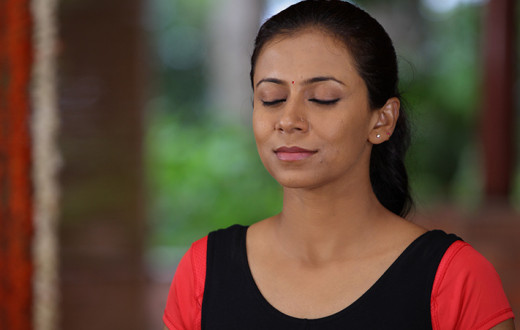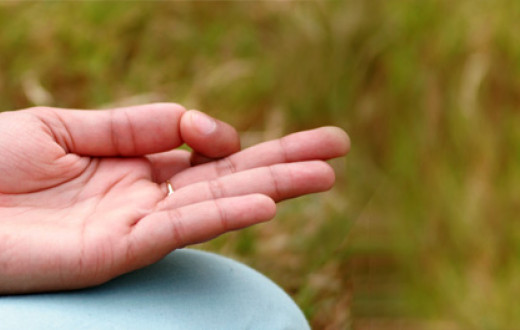Patanjali Yoga Sutra Knowledge Sheet 56
Contd. from knowledge sheet 55
"Sukha anushayi ragaha'' (II Sutra 7)
sukha = pleasant experience; anushayi = attraction; ragaha = cravings.
"Attraction to pleasant experience results in craving."
This craving makes you miserable. Patanjali says that there are only five sources of misery. There is no sixth source of misery. Ignorance, or thinking that which is changing as non-changing. We try to control others mind saying that they should be this way, that way. How is it possible? Someone may have had love for you yesterday, but not today, or tomorrow, who knows? They themselves do not know. Do you see that? We expect an enlightened behavior from everybody around us. Then we become unhappy. You are not behaving in an enlightened way, but you expect everybody else to behave in an enlightened way and to give unconditional love. You want them to give you unconditional love. When you expect this from people all around you, that is where you become unhappy.
Knowingly or unknowingly, consciously or unconsciously, this is what everybody is doing. Everybody is expecting unconditional love from people they meet with. Isn't it? And they do not even know what they are expecting. But they are expecting something very big.
They are seeking God in everybody. They are seeking God without seeing that God can be in any man he wants. They are looking for a saintly God in everybody around them. How things should be, that makes you miserable. Do you see what I am saying?
"Dukha anushayi dweshaha'' (II Sutra 8)
dukha = unpleasant experience (misery); anushayi= consequent repulsion; dweshaha = hatred.
"Hatred comes with an unpleasant experience."
Hatred comes, aversion comes with an unpleasant experience. Aversion also brings the same misery as happiness brings misery. Craving and aversion are both sources of misery. Abhinivesha or fear, fear of unknown. Though intellectually everything is know, even in great scholars there is a little amount of abhinivesha. Nature has enforced all these five things in everybody. Now, how thin can this get or how thick can this get? It can either make you evolve or unevolved.
"Swarasavahia vidishopi tatharudo abhiniveshaha"(II Sutra 9)
swarasa = own flavour; vahia = flowing; vidishaha = wise; api = even; tatha = the same; rudaha = established; abhiniveshaha = carefulness.
"Fear flowing in its own flavour even in the wise is established in them as carefulness."
It should not even be called as fear. It should be called as alertness. Fear has a different meaning altogether. It is a mix of alertness, carefulness and fear. There is a similarity of quality. That is why Patanjali has used the word called abhinivesha and not bhaya. Bhaya means fear. There is no word for it in English.
Abhinivesha in its thickest form is fear and in its thinnest form, in its diluted form is care. You are walking on the edge of the lake and you are putting your steps carefully so that you will not fall into the water. If this care would not have been there then this body would have vanished, disappeared. "When I am not the body, I will not attend to the body at all". In that case, "I will not have the body to speak longer or to do anything". To maintain the body certain amount of care is essential. Is this clear? When this care becomes little more than what is needed, then it becomes insecurity. If it becomes more, a little more, it is being paranoid. It is just like salt. If salt becomes more it becomes impossible to eat it. You cannot justify the presence of ignorance here. "Oh! Let it be there. A little ignorance can be there. So what? No, no …..thin them down, reduce it, reduce it to its minimum. Avidya, asmita, raga, dweha and abhinivesha the five kleshas or five sources of misery.
<<Ignorance is the root cause of Suffering
As You Sow, So Shall You Reap >>
(This is part of a series of knowledge sheets based on Gurudev Sri Sri Ravi Shankar's commentaries on Patanjali Yoga Sutras.)















